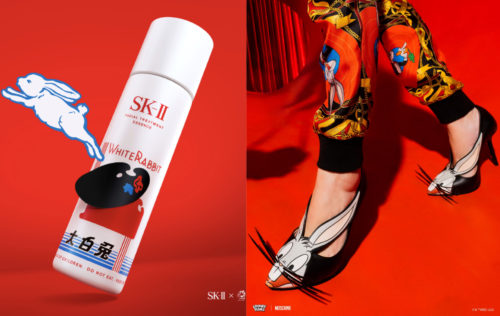Balenciaga accused of insulting Chinese people’s taste with ‘tacky’ and ‘offensive’ ads
Balenciaga, the luxury fashion brand founded in 1917 and known today for over-the-top, designs that cause online controversies, has yet again caused a major stir on the Chinese internet because of a new collection.

Balenciaga, the luxury fashion brand founded in 1917 and known today for over-the-top designs that cause online controversies, has yet again created a major stir on the Chinese internet because of a new collection.
The items causing the fuss belong to a new collection of handbags specifically designed for Chinese Valentine’s Day, also known as the Qixi Festival (七夕节 qīxījiē), which falls on August 25 this year. Unveiled over the weekend, the limited-edition bags, priced at 13,900 yuan ($2,000), are basically built on Balenciaga’s iconic Hourglass bag, but with some Chinese phrases embroidered on the bags, such as “He loves me” (他爱我 tā ài wǒ), “I love you” (我爱你 wǒ ài nǐ), and “You love me” (你爱我 nǐ ài wǒ).
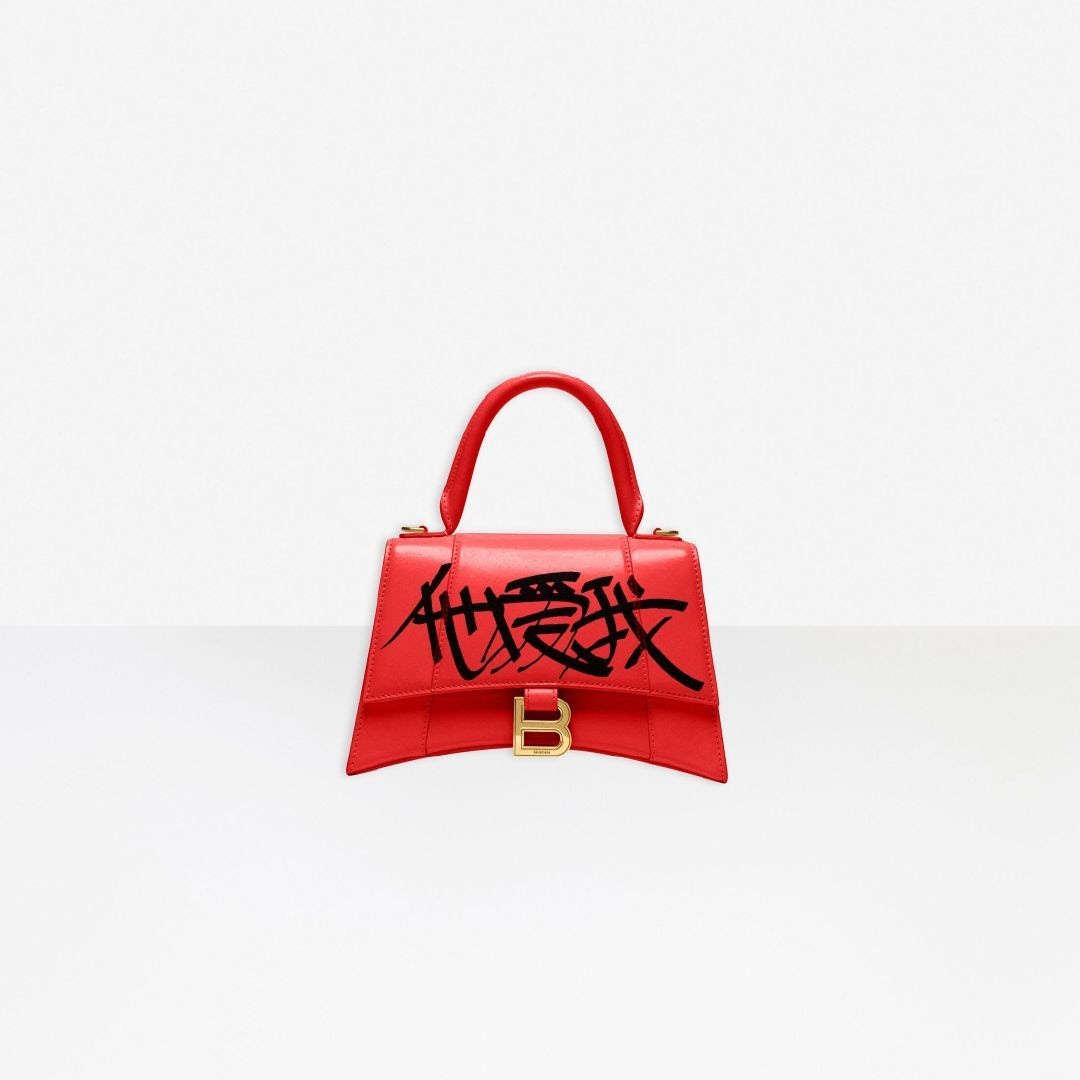
While the handbags themselves have attracted a fair amount of criticism from some Chinese people, who said that the design came across as “unsophisticated” compared with other Qixi-themed items released by international fashion powerhouses, what really sent the Chinese internet into a frenzy was an advertising campaign that accompanied the release of the items.
In a series of promotional images for the special collection, two Chinese models, a man and a woman, can be seen posing in front of old-fashioned scenic posters that recall the aesthetics liked by older generations. Also photoshopped into the pictures are pink flowers, butterflies, and simple graphics that, according to critics, all scream “tacky” and “dated.”
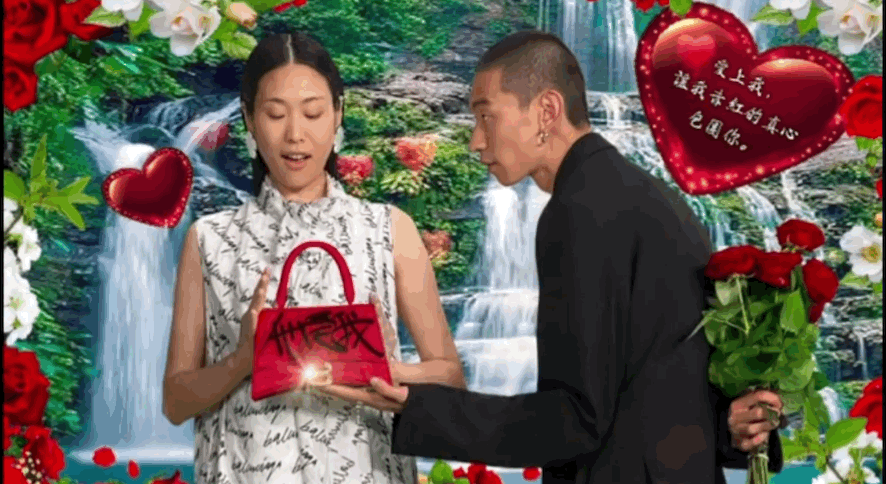
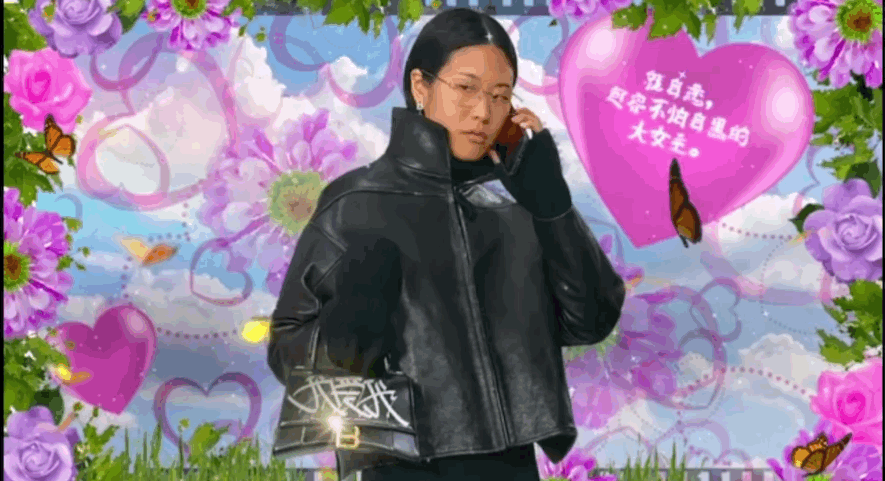
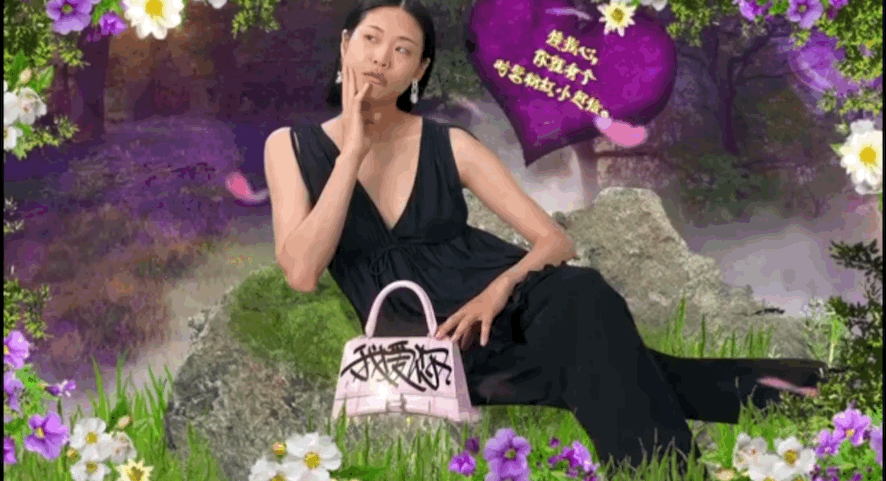
“The ad campaign is downright ugly and tasteless. It reminds me of the style used by photography studios in rural China in the 1990s,” a Weibo user wrote in a post (in Chinese), which so far has received nearly 630,000 likes.
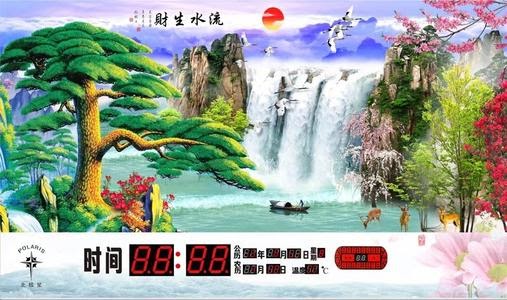
Some people raised questions about the real intention behind the pictures, saying that the whole campaign seemed to be a direct insult to Chinese people’s tastes in fashion. “The images were created for nothing but to make us feel uncomfortable! The goal is to troll us and make fun of us. I see no reason to buy this offensive handbag when there are plenty of high-end brands out there. Don’t let Balenciaga profit off something that makes Chinese people the butt of the joke,” a Weibo user commented.
Not all the reactions were negative, though. On Weibo, a small number of fashion lovers came to Balenciaga’s defense, arguing that “ugly” designs had long been the backbone of Balenciaga designer Demna Gvasalia’s aesthetics, and that those who felt offended were probably taking the brand’s advertising tactics too personally. “Speaking for myself, I don’t think it’s tasteless. It’s very Chinese and I like the vintage and retro vibes of it. I believe many young Chinese people like me also think being a little tacky is now fashionable,” a Weibo user wrote.
As of today, on Weibo, the hashtag #巴黎世家七夕广告 土# (“Balenciaga’s Qixi-themed commercial is tacky”) has garnered about 180 million views and inspired more than 22,000 posts. In an online poll (in Chinese) conducted by Toutiao News on Weibo, about 57% of the roughly 13,000 respondents said that the pictures were “unacceptable” because they were “too tacky.” A little over 35% of the people surveyed said they were indifferent because the handbags were too expensive anyway.
Balenciaga is not the first Western fashion brand to provoke a backlash among Chinese consumers due to promotional materials accused of stereotyping Chinese culture or Chinese people in a disrespectful way. When trying to appeal to the Chinese market, many foreign fashion brands seem to have a fixation on using elements that they think are representative of traditional Chinese aesthetics.
But in recent years, this old common tactic has backfired frequently, with Chinese consumers seemingly reluctant to be associated with labels like “typical Chinese,” “underdeveloped,” or “exotic.” A prime example is the 2017 controversy surrounding Italian luxury fashion house Dolce & Gabbana (D&G), which was slammed by Chinese internet users for being disrespectful after using outdated street views in Beijing as the main background in an online ad campaign.




